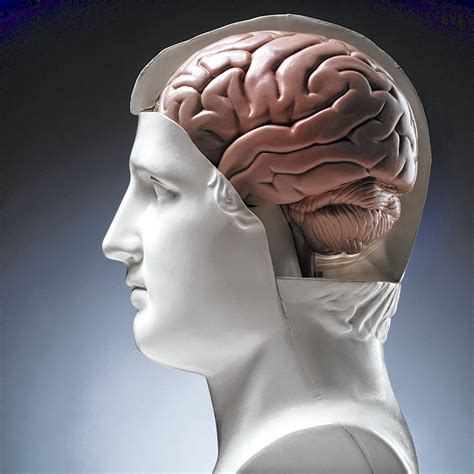According to a study, the brain perceives unethical behaviour as impossibly difficult.
Consider yourself in need of a snack at work when you notice a candy bar on a colleague’s desk. Why not simply consume it while the co-worker is absent?
Some people may not engage in it since they are aware that it is improper. Due to the risk, some people could decide against doing it. According to a recent study, however, the majority of people’s initial reaction may be to believe that it is not even conceivable.
Researchers Fiery Cushman, and Jonathan Phillips, found that people by nature prefer to think that immoral acts are simply impossible. They published their research In the Proceedings of the National Academy of Sciences, the work is published.
The common response to immoral behaviour, according to Phillips, is “No, it can’t be right” or “I can’t believe that.” The way the brain responds to these situations he says “ is comparable to how it would respond if someone told you it was feasible to change your hat into a candy bar or something else that should be impossible.”
The authors cite studies on young children as one piece of evidence. Young children also assert that occurrences that transgress moral or social norms, such as stealing candy, cannot occur, in contrast to adults who assert that things like eating lightning are against physical laws according to a study by Phillips and Cushman published in Psychological Sciences. They also claim that such immoral happenings would require “magic” in addition to judging them to be “impossible” (18, 19).
According to Cushman, the brain may be responding in that way for a valid cause.
“We believe that this might genuinely encourage moral behaviour in everyday situations, he added. Maybe doing the right thing is simpler if your brain is wired to view doing the wrong thing as impossible. Considering that if you acknowledged something as being conceivable, it might start to feel quite alluring.”
According to him, every individual has two voices in their thoughts that make suggestions for possibilities — a more intuitive one that adheres to morality’s principles and a more deliberate one that adheres to physics’ laws.
What Cushman meant was that “part of what we’re discovering is why people deem things doable or impossible.” He argues “It turns out that humans don’t approach this the way a scientist or philosopher would, to know everything there is to know about the world. The majority of people want to live in a realistic world, thus you shouldn’t act in an immoral or irrational manner. Therefore, a practical method to making decisions is to just declare all of those things to be impossible and concentrate on the group of things that are worthwhile spending your time on.”
Cushman and Phillips designed an experiment using the online labour market Amazon Mechanical Turk to see how individuals responded to immoral and impossible situations.
Participants were shown scenarios where a person had a challenge, such as how to go to the airport when their automobile breaks down. They were shown a series of hypothetical solutions that were either immoral—such as witnessing a mugging—or physically impractical—such as turning your hat into a candy bar—and asked to judge how “feasible” they thought each one was.
The trick, according to Phillips, was that half of the participants had to react quickly—in just 1.5 seconds—while the other half was instructed to respond after waiting 1.5 seconds.
The findings were startling; when participants had more time for thinking, according to Phillips, they deemed one-fourth of immoral acts impossible. However, when participants had less time, as many as 50% were labelled impossible.
“If people get the opportunity to think about this,” Phillips said, “they’ll employ their well-formed, reasoned understanding of which things are feasible and impossible.” However, “when they must respond quickly, they do not have time to do that and must instead rely on this presumption that nothing could go wrong”.
The study poses several new concerns and may help us better understand why some people repeatedly engage in immoral behaviour.
People with psychopathic inclinations are something we are eager to investigate, according to Phillips. “Do they simply have no concern for anything like stealing? Or do they care? The issue is that they can’t get it out of their heads, which causes them to eventually collapse. Perhaps they wouldn’t exhibit this impact.”
The study offers one potential explanation for why turning to religion is frequently a beneficial tactic for those trying to quit using alcohol or other substances.
“Maybe they’re trying to say, We know you want it, but you’re going to treat it as if it’s something you can’t do,’ by making such things morally wrong,” he speculated. But there’s still one more thing we want to know: Isn’t this a terrible blind spot? And Cushman. “Wouldn’t you be taken for a sucker right away if you went around thinking that individuals couldn’t do unethical things?”
According to Cushman and Phillips, the reality may be that people alternate between two different morally limited systems of perceiving the world and another that enables us to consider the immoral actions of others.
“The first is used to control your behaviour and to consider the behaviour of others near to you,” according to Phillips. “However, the other system isn’t set up that way… because denying the prospect that anything horrible could happen to you is a foolish idea.”
Additional Views on Immoral Behavior
Immoral behaviours are those that go against the standards, ideals, and principles outlined in the moral code that establishes the standards of behaviour for a particular social group. They are founded on so-called “anti-values,” which are the antithesis of what is seen as proper.
Generally speaking, engaging in immoral behaviour has bad effects on the person engaging in it as well as their immediate social context. Because of this, society marginalizes and accuses those who violate the moral code to uphold it.
It is sometimes assumed that those who commit immoral activities are mentally sick or have extremely particular personality types. However, everyone has a limit beyond which they can behave immorally.
According to the hypothesis of moral disengagement, when people act immorally, they experience cognitive dissonance, or an internal conflict because their actions do not line up with their attitudes.
They can reinterpret their actions, deny the harmful effects of their actions, place the blame on the victim, and dehumanize them to resolve this.
This research points to the need for society to place a greater emphasis on moral behavior and ethics, particularly for leaders, as I describe in detail in my book, Virtuous Leadership: The Character Secrets of Great Leadership.


